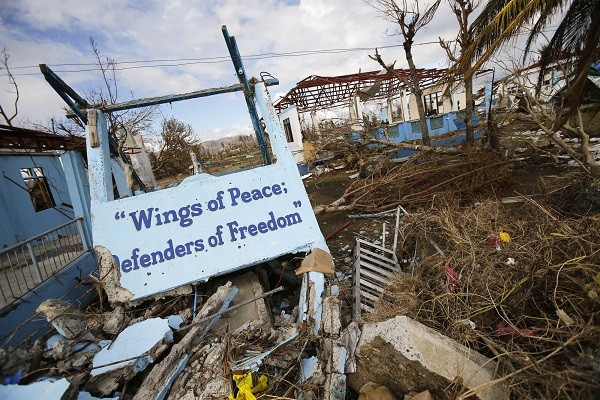Typhoon Haiyan: Why the Needs of Women and Girls Must Not be Lost in the Rubble

The shocking images of the devastation caused by Typhoon Haiyan in the Philippines will leave many with a sense of helplessness. Fortunately, aid agencies and governments around the world, including our own, are rushing to help and support the relief effort. However, any co-ordinated response must go much further than simply supplying food, water and shelter.
Whenever conflict or natural disaster devastates communities, women and girls will face specific dangers because of their gender. In addition to losing their homes and loved ones women and girls also face the added risk of gender based violence, such as sexual assault, domestic violence, trafficking and early or forced marriage.
There are issues which unite MPs no matter what side of the aisle they sit on. Preventing violence against women and girls in emergencies is one of them. Between us we have visited the DRC, Burundi and Rwanda to meet survivors of gender-based violence. To say we were shocked to the core by the traumatic tales of violence heaped on women and girls is an understatement. We were also astounded by the fortitude of those who have managed to move on with their lives and those organisations that helped them to heal and recover.
Emergencies cause mass displacements that disrupt or destroy the social structures, networks and systems that protect women and girls from violence. In the aftermath of an emergency the lack of facilities or resources to support women and girls leaves them at increased risk of economic and sexual exploitation, yet too often the humanitarian response fails to consider their needs.
Tasks such as distributing food, or providing warm clothes and shelter, are obviously of life-and-death importance in emergencies; but prevention of violence against women and girls remains a secondary concern. If a woman is raped she has just 72 hours to access care to prevent the potential transmission of HIV, 120 hours to prevent unwanted pregnancy and sometimes just a few hours to ensure that life-threatening physical injuries do not become fatal. Not to mention the importance of early access to counselling which is important for healing and recovery.
Now we have an opportunity to change this out dated approach. The Department for International Development (DFID) has brought together the UN, NGOs and ministers from donor countries to take steps to ensure that all responses to emergencies include projects specifically designed to prevent and protect women and girls from violence right from the beginning of an emergency.
The UK government is setting a high standard. This year the FCO took the lead on tackling impunity for sex attackers during wars through the 'Preventing Sexual Violence in Conflict Initiative' and DFID has already announced an ambitious £25 million initiative, entitled Violence against Women and Girls Research and Innovation Fund, to be delivered across 20 countries over five years.
The urgent need for action on the issue is acutely clear with the fall out from the war in Syria, the largest humanitarian emergency for a generation. Earlier this year, a report by the International Rescue Committee outlined the impact of the fear of sexual violence on female Syrian refugees. The organisation has responded by setting up women's centres and providing counselling to help Syrian women and girls in Lebanon, Jordan and Iraq. In Syria itself the IRC will support more than 2,000 women and girls in the north of the country.
DFID have taken the initiative to shine a light on this abhorrent reality, but it is not the time to be complacent. The world needs to act now to make protecting women and girls in humanitarian crisis a priority. It will require global commitment and more resources.
Most of all, it will require more than just words, it will require action. We are looking forward to seeing how the promises made today by the UN and donor countries translate to real change for women and girls in emergencies, starting with the global response to those affected by Typhoon Haiyan. And we hope that the UK continues to play a leading role in making sure this important issue is no longer relegated to the sidelines.
Nadhim Zahawi is a British Conservative Party politician who has been the Member of Parliament for Stratford-on-Avon since 2010. Twitter: @NadhimZahawi
Anas Sarwar MP is a British Labour Party politician and has been the Member of Parliament for Glasgow Central since May 2010. Twitter: @AnasSarwar
© Copyright IBTimes 2025. All rights reserved.





















